28. Implement strStr()(KMP字符串匹配算法)
Implement strStr().
Return the index of the first occurrence of needle in haystack, or -1 if needle is not part of haystack.
Example 1:
Input: haystack = "hello", needle = "ll" Output: 2
Example 2:
Input: haystack = "aaaaa", needle = "bba" Output: -1
class Solution { public: int strStr(string haystack, string needle) { if (needle.size()==0) return 0; if (needle.size()> haystack.size()) return -1; vector<int> next(needle.size(),0); int j = 0;//前缀末尾,同时也是最大相同前后缀长度 int i = 1;//后缀末尾 for(int i = 1;i < needle.size();i++) { while(j>0 && needle[i]!=needle[j]) { j = next[j-1]; } if (needle[i] == needle[j]) { j++; next[i] = j; } } j = 0; for(int i =0; i < haystack.size();i++) { while(j > 0 && haystack[i]!=needle[j]) { j = next[j-1]; } if (haystack[i]==needle[j]) { j++; } if (j==needle.size()) { return i-needle.size()+1; } } return -1; } };
https://www.bilibili.com/video/BV1M5411j7Xx/?spm_id_from=333.788.recommend_more_video.-1
暴力
class Solution { public: int strStr(string haystack, string needle) { if (needle.size()==0) return 0; if (needle.size()> haystack.size()) return -1; for(int a = 0; a <= haystack.size()-needle.size();a++) { int j = 0; int i = a; while(i < haystack.size() && j < needle.size() && haystack[i]==needle[j]) { j++; i++; } if (j==needle.size()) { return i-needle.size(); } else { j = 0; i = a+1; } } return -1; } };
暴力解法:如果模式串匹配失败,需要回溯到模式串的起始位置
我们想可以不用回溯到起始位置,如图:
如果能确定A==B 可以直接跳到C跟d比较
问题就转化成了如何求模式串中前缀串于后缀串相等的K个
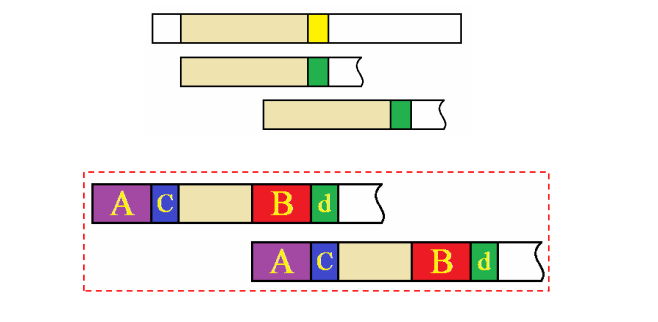
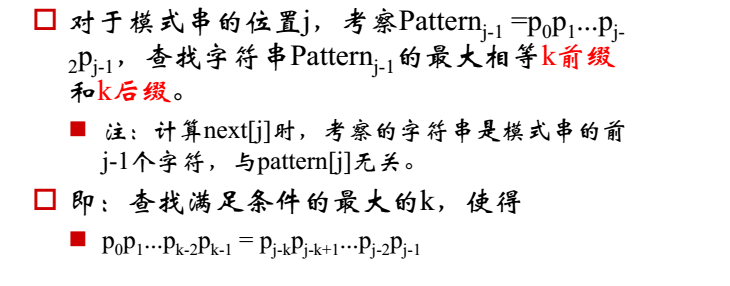
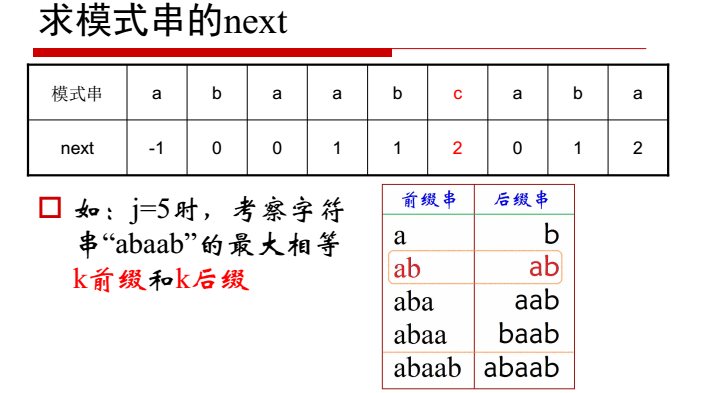
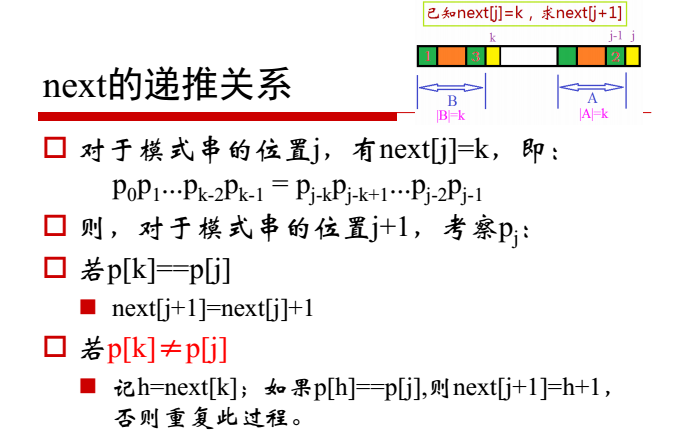
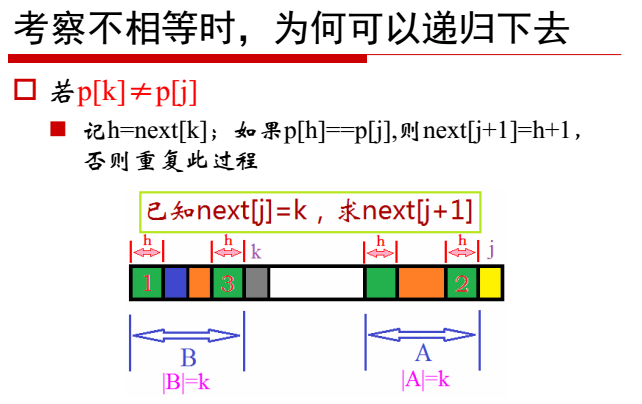
1 class Solution: 2 def strStr(self, haystack, needle): 3 """ 4 :type haystack: str 5 :type needle: str 6 :rtype: int 7 """ 8 if needle =='': 9 return 0 10 nexts=self.caclNext(needle) 11 ans = -1 12 i = 0 13 j = 0 14 while i < len(haystack): 15 if(j==-1 or haystack[i] == needle[j]): 16 i += 1 17 j += 1 18 else: 19 j = nexts[j] 20 if j == len(needle): 21 ans = i - len(needle) 22 break 23 return ans 24 25 def caclNext(self, p): 26 nexts = [0]*(len(p)) 27 nexts[0] = -1 28 k = -1 29 j = 0 30 while j < len(p) - 1: 31 if k == -1 or p[j] == p[k]: 32 k += 1 33 j += 1 34 nexts[j] = k 35 else: 36 k = nexts[k] 37 return nexts



